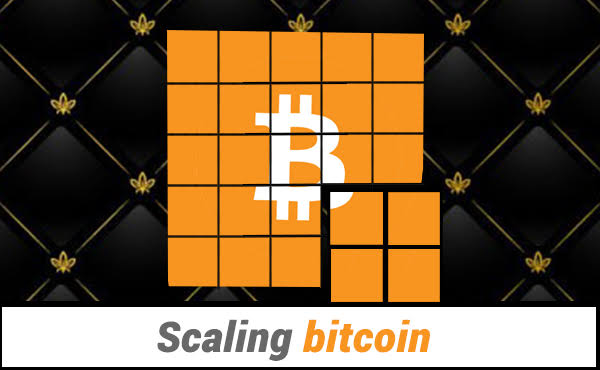Mark Friedenbach, a protocol developer for BTC or Bitcoin has

Mark Friedenbach, a protocol developer for BTC or Bitcoin has come up with a suggestion to enhance BTC’s block size without having to undergo a hard fork. Speaking at a Scaling Bitcoin workshop in Tokyo on 5th October, he posited the idea that can be introduced for scaling the protocol.
Addressing the crypto enthusiasts present at the workshop called “Forward Blocks”, he said that the on-chain capacity of the protocol can be substantially increased by using a soft fork mechanism that incorporates a Proof-of-Work (PoW) alternation. If used in combination with alternative private ledgers, this system can provide an easy replacement for the usual hard fork solutions. His suggestion includes a way to scale the protocol that offers the capability of increasing volume of settlement transaction by 3584 times the present rate. It also proposes to enable better censorship resistance through sharding.
While conducting his presentation, the developer suggested several substantial ways to improve the way transactions on the Bitcoin blockchain work. This soft fork model would ideally require a fortification of existing consensus rules. While this would mean old nodes can
“still see the chain advance”,
even non-upgraded nodes will be able to be on the receiving end of all transactions, and continue to process them. Friedenbach further stressed on the importance of “sharding” in enhancing censorship resistance, borrowing the term from the world of databases. However, it is important to note that the term has not been used in its usual crypto-related applicability, but in the actual sense of the term. This term had received a lot of attention with regard to the upcoming upgrades in the Ethereum network. As Ethereum’s co-founder Buterin had stated in April of this year, the term means a way to enhance the number of transactions that a blockchain can support or process. The basic concept implies that different network computers can distribute the work of processing the on-chain transactions between themselves.
The developer, who used to work as a contractor with the NASA earlier, went on to say that he was initially trying to think about how to develop
“a dual PoW change where you introduce a new PoW with a soft-fork.”
While considering this, he stumbled upon the possibility of BTC scaling and emphasized that this was only an idea or a suggestion to guide developers rather than definitively drive subsequent changes.
In crypto circles, the issue of BTC scalability has been a major one of late and this year’s July saw a new collaboration of BTC engineers launch a group called Bitcoin Optech to take up the challenging problem of scaling the blockchain network of Bitcoin.

